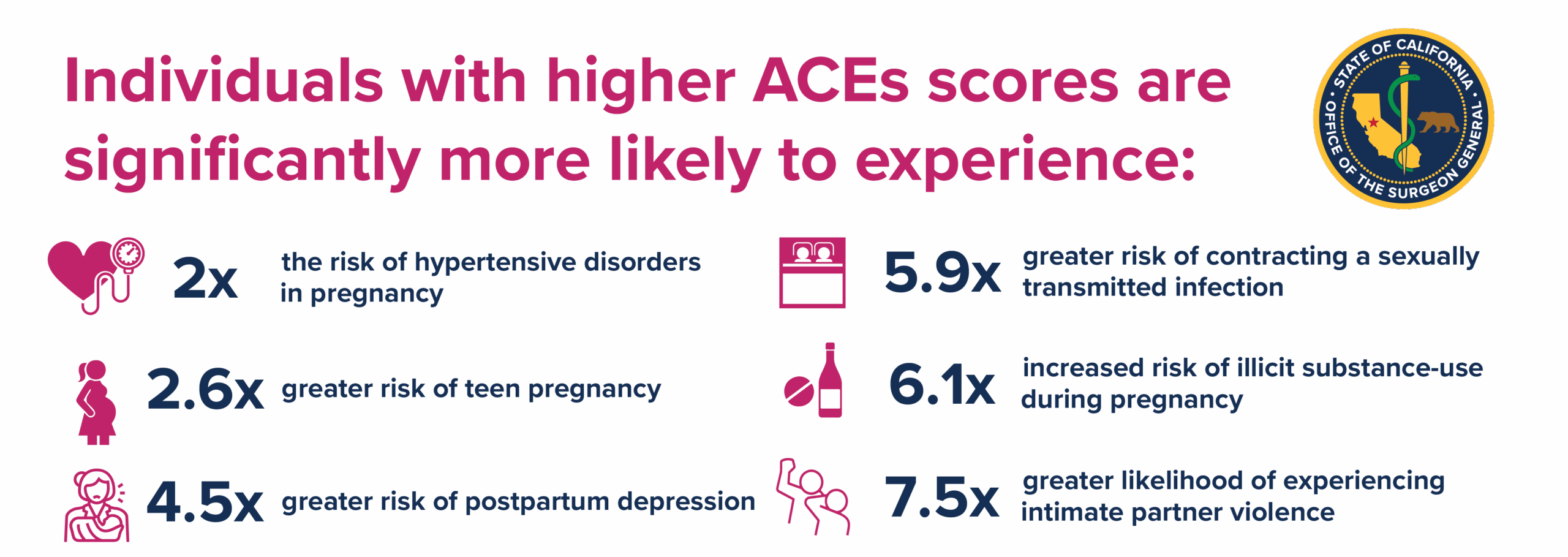Adverse Childhood Experiences (ACEs) in Reproductive Health
We can’t close the gap in maternal health without understanding the lifelong impacts of trauma. The effects of ACEs often resurface in adulthood, especially during pregnancy and parenting.
WHY IT MATTERS
Adults with higher ACE scores are at greater risk for chronic illness, depression, substance use, and postpartum depression or pregnancy related health issues. By integrating trauma-informed care and ACEs screening into reproductive and adult health services, we can support the health of both parent and child.


Setting the Trajectory for a Healthier Pregnancy and Beyond
When a pregnant person has lived through ACEs like poor mental health, stress, or lack of support, the impact can ripple across each stage of their child’s development, but with support, connection, and early care, parents can change the path forward.

Addressing ACEs During Reproductive Years
The reproductive years—before, during, and after pregnancy—provide a critical window to disrupt intergenerational cycles of trauma and promote long-term well-being. Supporting individuals during this time can improve maternal and infant health, strengthen family stability, and lay the foundation for healthier communities.

